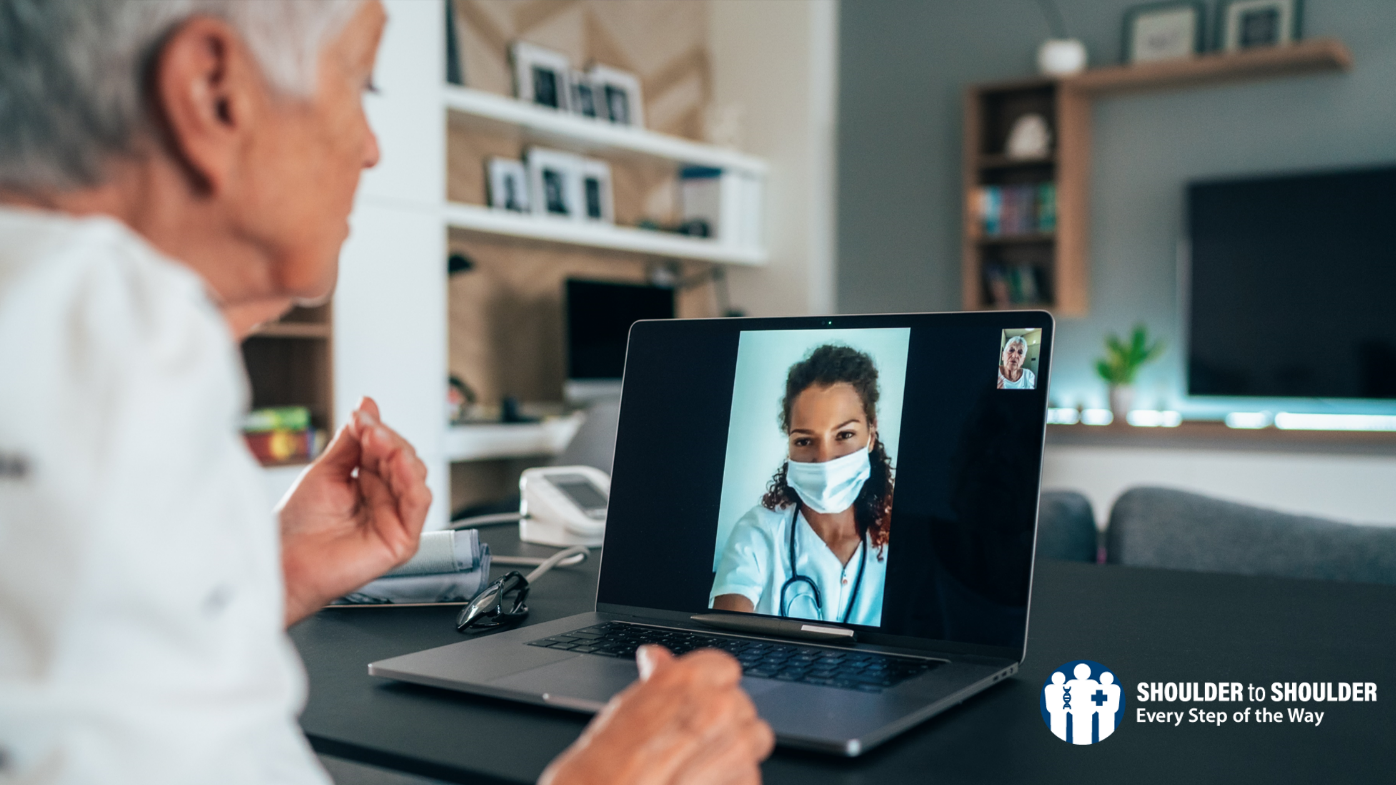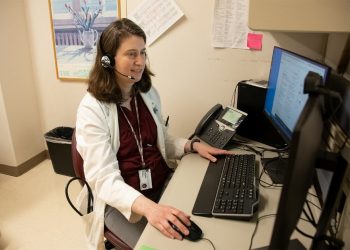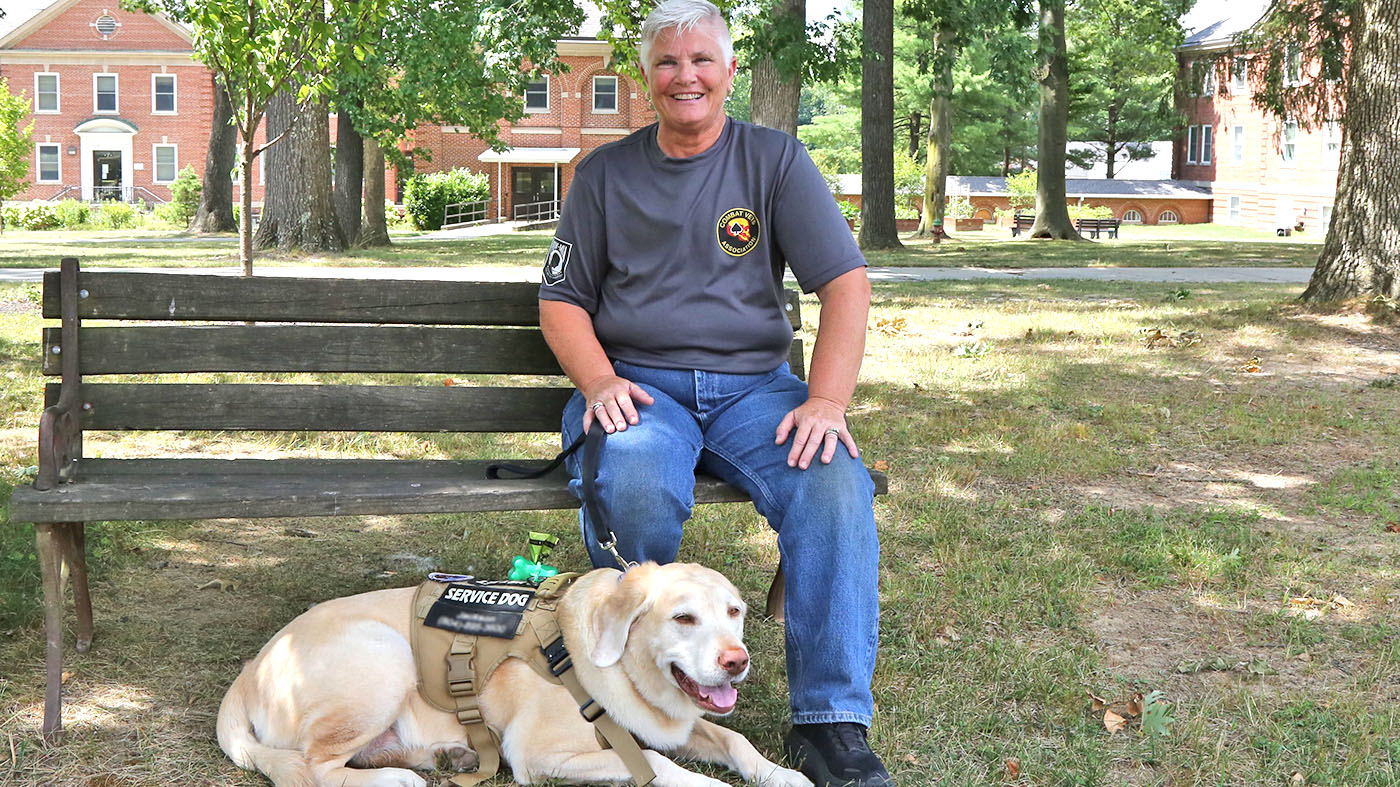Michael Goodman, MD, a hematology/oncology physician and researcher at the W.G. (Bill) Hefner VA Medical Center in Salisbury, North Carolina, has provided TeleOncology services to patients at VA centers that do not have an on-site oncologist. Regardless of age, patients find the technology useful because it saves them and their family the cost and burden of travel.
“I did a telehealth visit with a patient with prostate cancer who was 91,” said Goodman. “After the visit, I asked ‘What did you think about today’s visit?’ and he said, ‘I loved it! I didn’t have to ask my daughter to take off work to drive me to come see you in Salisbury.’ I did not expect that 91-year-old to like the technology so much.”
Providing specialty care access to Veterans who need it most
Veterans enrolled in the Veterans Health Administration (VHA) system are two and a half times more likely to live in rural areas. According to an American Society of Clinical Oncology (ASCO) workforce report, 66% of rural counties have no oncologist. The same report notes that 4 in 10 Americans living in rural areas who have or had cancer say there are no cancer specialists near their home.
Thanks to the partnership between the National Oncology Program and the Bristol Myers Squibb Foundation, rural Veterans have access to top VA cancer specialists through the National TeleOncology Program (NTO). NTO leverages telehealth to provide world-class oncology care and services to Veterans, regardless of where they live.
NTO delivers screenings, diagnostics and treatment for medical oncology – including rehabilitation and palliative care – which improves access and outcomes for Veterans. In 2019, over 3,000 Veterans received access to high-quality cancer treatment through TeleOncology.
Oncologists can see the difference TeleOncology makes for their patients. Daphne Friedman, MD, a staff physician and expert in blood cancers at the Durham VA Medical Center, has seen improvements in her patients’ care after they started utilizing TeleOncology.
“I enjoy providing care through TeleOncology because I’m helping people who otherwise don’t have access to subspecialty cancer care,” said Friedman. “I know I’m making a difference.”
Connection through technology
Patients can access TeleOncology two different ways: They can visit with providers from an internet-connected device in their own home through VA Video Connect (VVC), or at a VA Medical Center using clinical video telehealth (CVT). As of 2021, there are six TeleOncology sites located around the country, with some type of CVT/VVC support – and dozens more being developed. To further improve access, VA’s partners at AT&T, T-Mobile, Tracfone and Verizon support zero-rating data charges for all VVC sessions for Veterans.
NTO wants to ensure more Veterans experience the same quality of care by increasing access to providers and innovative treatment options. With a $4.5 million grant from the Bristol Myers Squibb Foundation, VA is expanding the number of TeleOncology staff throughout VA. This partnership will also fund increased access to expert precision oncology care and potentially life-saving clinical trials to Veterans living in rural communities.
Why Veterans choose TeleOncology
Veterans choose VA TeleOncology for their care because:
- Patients and their caregivers can easily attend appointments.
- Different options for receiving care (e.g., VVC or VAMC/CVT).
- Connection to high-quality cancer treatment without spending time, money and energy traveling long distances for care.
- Consultations from VA’s national oncological experts for Veterans with rare cancers.
- Access to innovative clinical trials for Veterans regardless of where they live.
For more information on how VA works shoulder-to-shoulder with strategic partners to expand access and reduce barriers to cancer care for Veterans across the nation, please visit cancer.va.gov, or contact cancer@va.gov.
Topics in this story
More Stories
Combat Veteran faces the traumatic events of her PTSD during prolonged exposure therapy and looks forward to the days to come.
Bob Jesse Award celebrates the achievements of a VA employee and a team or department that exemplifies innovative practices within VA.
The Medical Foster Home program offers Veterans an alternative to nursing homes.








I got a letter from the VA dated June 17, 2021 . It says” We have conducted a special review of your claims file mandated by the United States District Court’s Orders in Nehmer v. U>S> Department of Veterans Affairs . The estimated amount of retroactive benefits is $47,098.00.
As of todays date 16 July 2021 I have NOT seen a penny of this money. I have Direct Deposit of my monthly checks which has been in effect for many years,
SFC John E. Stafford
US Army Retired